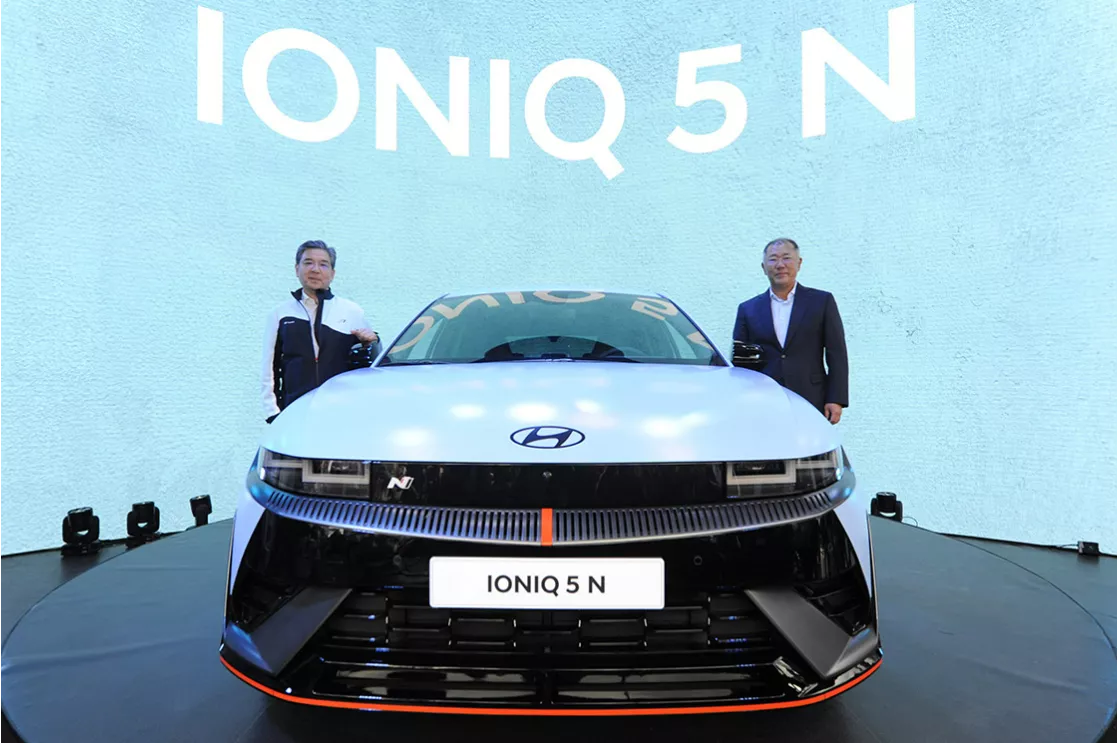
(Photo : Hyundai)
Hyundai's Profits Dip Amid Domestic Sales, Red Sea Crisis
- Hyundai Motor India reports a 16.5% decline in quarterly profit due to decreased domestic sales and Red Sea disruptions.
- The Red Sea conflict has significantly impacted global supply chains, forcing vessels to divert and causing a 17% fall in Hyundai's exports.
- Domestically, India's car sales have experienced a downturn for the first time in 10 quarters, affecting manufacturers like Hyundai and Maruti.
- The Red Sea crisis has led to increased shipping costs and disruptions to global supply chains, impacting companies like Hyundai and Nissan.
Hyundai Motor India, the country's second-largest carmaker by market share, has reported a 16.5% decline in quarterly profit. This downturn is attributed to a decrease in domestic sales and disruptions in the Red Sea affecting exports. This is the company's first earnings report since its listing, and it showed a drop in standalone profit to 13.38 billion rupees ($158.6 million) in the second quarter, down from 16.02 billion rupees a year earlier.
The company's shares experienced a brief dip, falling nearly 3% before recovering to a 1% decrease in late afternoon trading. Hyundai, known for its 'Creta' SUV, has seen a 6% drop in domestic sales due to weak demand in India. Exports have also suffered, falling 17% due to the ongoing Red Sea disruptions.
The Red Sea has been a hotbed of conflict, with Houthi rebels attacking ships since late 2023. This has had a significant impact on global supply chains and trade, as vessels are forced to divert around Africa's Cape of Good Hope. This situation has been particularly damaging for Hyundai, whose 15% market share is second only to Maruti Suzuki's 41%.
Impact on Domestic Market and Global Trade
Domestically, India's car sales from July to September experienced a downturn for the first time in 10 quarters. This was primarily due to poor demand for small cars and slowing growth for some SUV manufacturers, including Hyundai and Maruti. Last month, Maruti, which primarily sells small cars, reported its slowest quarterly revenue growth in nearly three years.
Hyundai's overall revenue fell 7.5% to 169.61 billion rupees in the quarter as sales volumes, including exports, dropped about 9% in the quarter. SUV sales, which make up about 60% of Hyundai's volumes, dipped 0.5%. Despite these challenges, the company, which went public in October following a $3.3 billion IPO that was the country's largest ever, said it expects sustained demand momentum for cars in the mid to long term.
In a related development, Nissan announced plans to slash its global production capacity by 20%. This comes at a time when the US stock market is experiencing a significant tumble, with Tesla and Google results sparking a sell-off. Tesla, one of Wall Street's most valuable companies, reported a 45% drop in profit for the spring and missed earnings estimates. This has added to worries about weakening profit margins amid ebbing demand for Tesla's electric vehicles.
Red Sea Crisis and Its Global Implications
The Red Sea crisis has had a profound impact on global trade. Houthi militants in Yemen have been attacking ships in one of the world's busiest maritime trade routes. These attacks have resulted in the deaths of at least three seafarers and the sinking of a bulk carrier. They have also caused major disruptions to global trade, some 12% of which passes through the Red Sea.
The crisis has forced many shipping companies to reroute their vessels, adding around 3,500 nautical miles (6,500km) and 10-12 days sailing time to each trip. This has led to higher insurance premiums, possible legal problems, unpredictable delays, and increased costs. The extra distance also means more fuel consumption and higher carbon emissions.
The Suez Canal, the quickest sea route between Asia and Europe, is particularly important in the transportation of oil and liquefied natural gas (LNG). About nine million barrels of oil per day were shipped through the Suez Canal in the first half of 2023. The disruption to shipping has led to warnings from companies like Ikea and Next that supplies of products could be delayed.
The Red Sea assaults have also led to a significant increase in shipping costs. Thomas O'Brien, boss of family-run Boxer Gifts, reported that their shipping costs have jumped 250%. The British Retail Consortium (BRC) has warned that the disruption could have a knock-on effect on product availability and prices.
In conclusion, the Red Sea crisis has had a significant impact on global trade and the automobile industry. Companies like Hyundai and Nissan are feeling the effects, with falling profits and plans to cut production. The crisis has also led to a significant increase in shipping costs and disruptions to global supply chains. As the situation continues, it remains to be seen how these companies and the global economy will adapt to these challenges.









